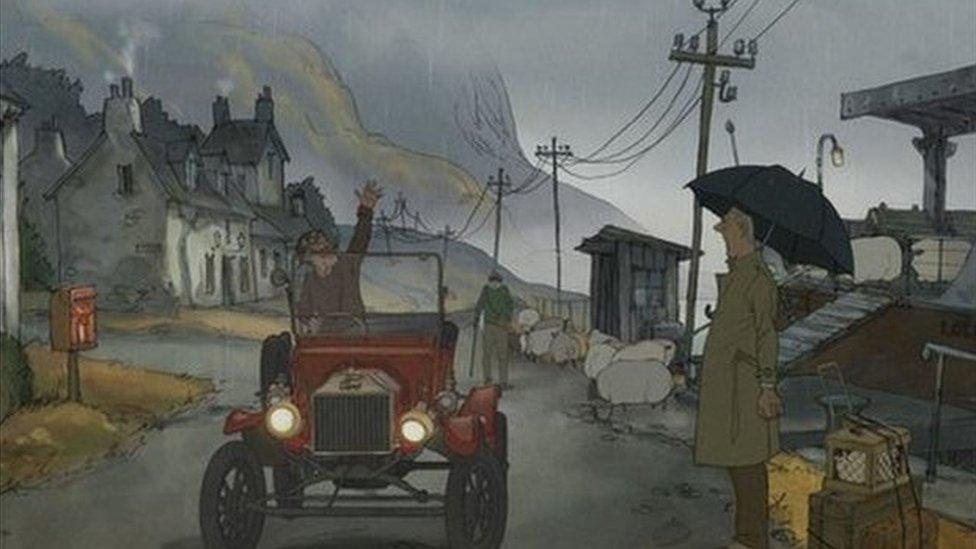Missed chance to build on success of The Illusionist
- Published

Sylvain Chomet's The Illusionist was produced in Scotland by Bob Last
Scotland's animation industry missed the opportunity to capitalise on its Oscar success, according to a report.
Animators from Scotland and Europe worked on The Illusionist, a critically acclaimed film released in 2010.
The feature film, which was set in Scotland, went on to receive Oscar, Bafta and Golden Globe nominations.
However, a report commissioned by Creative Scotland found that few of the filmmakers who worked on the production remain in Scotland.
Scottish animation struggles to retain talent, with many graduates moving to hubs in London, the south-west of England, or abroad.
The arts agency said that there were hopes the release of The Illusionist could lead to a "burgeoning animation sector".
But during its review of the country's animation sector, consultees told them they believed "an opportunity was lost to capitalise on its success".

Short film Nothing to Declare is currently in production and it has been supported by the Scottish Film Talent Network (SFTN)
The Review of the Scottish Animation Sector, external was compiled by BOP Consulting and it draws on evidence from individuals and organisations in the industry.
It found that the industry was made up of a small number of talented, passionate professionals who produced high-quality work.
It pointed to the success of the Bafta award-winning children's show Ooglies, produced by Ko-lik, external and BBC Scotland, and to the track record of Red Kite Animation, external, which makes the Dennis the Menace and Gnasher series.
And it was clear that there is "potential" in the animators and producers north of the border.
But it warned that the volume of work produced in Scotland was small and the industry struggled to compete on a global stage.
There are fewer than 50 animation companies in Scotland - mainly clustered in the central belt - and many of them employ just two or three people.
'Diverse animation ecosystem'
A "feast or famine work cycle" is highlighted in the report, as filmmakers are often so busy working on one project, they do not have time to pursue other work.
Among a series of recommendations, it calls for a revival of the Scottish Animation Network, which has been dormant in recent years, which could "promote, advocate and facilitate networking and collaboration at home and internationally".
Ken Anderson, of Red Kite Animation, was among those who contributed to the report.
He said: "The review gives a great summary of the diverse animation ecosystem in Scotland and highlights the need for everyone across government, broadcast, education and industry to work closely together to build on the huge potential that this sector holds.
"The recommendations are a terrific starting point for leaders in business and government to work together and to put time, resources and funding behind an industry that will be one of the key areas of development and growth for Scotland in the decades to come."
'Centre for excellence'
Natalie Usher, director of screen at Creative Scotland, said the report showed "highly-skilled, talented and ambitious individuals generating high levels of excellence and innovation".
She added: "However, the study also identifies a number of challenges to the sustainability of careers in the sector and how best to develop the necessary scale whilst maintaining quality, ambition and reach.
"We want Scotland to reach its potential and be recognised as an international centre of excellence for animation.
"Following today's publication, we will bring together sector representatives and other industry partners to consider the findings of the Review and develop a cohesive and co-ordinated response that works towards the sustainable growth we all want to see."
- Published25 January 2011
- Published16 June 2010